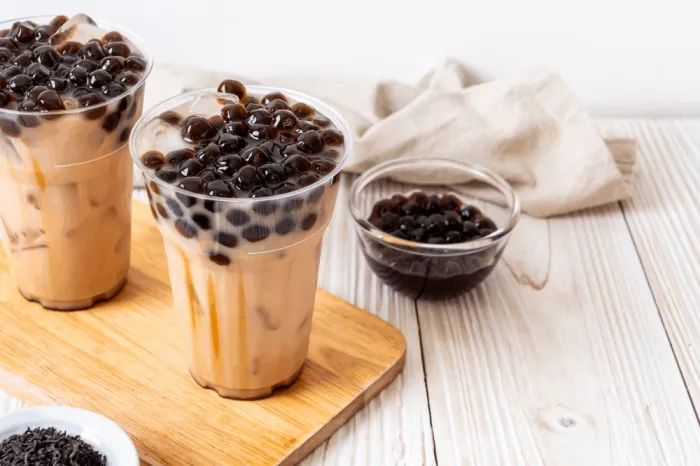Breastfeeding is a beautiful experience that offers numerous benefits to both mother and child. However, many new moms worry about their diet during this time. One common question that arises is whether milk tea is safe for breastfeeding mothers. This article explores the safety, benefits, and potential concerns of consuming milk tea while breastfeeding.
Understanding Milk Tea
Milk tea is a popular beverage made by brewing tea leaves and adding milk. Some variations may include sugar or other flavorings. Different cultures have their unique styles of milk tea, such as chai in India or bubble tea in Taiwan.
Components of Milk Tea
Milk tea typically consists of two main components: tea and milk.
Tea: The type of tea used can vary. Common choices include black tea, green tea, or herbal teas. Each type of tea has different levels of caffeine and antioxidants.
Milk: Cow’s milk is the most common choice, but plant-based options like almond or soy milk can also be used.
Nutritional Benefits of Milk Tea
Milk tea can offer some nutritional benefits to breastfeeding mothers.
Hydration
Staying hydrated is crucial for breastfeeding. Milk tea can contribute to daily fluid intake. However, it is important to balance it with water to avoid excessive caffeine.
Calcium
The milk in milk tea provides calcium, which is essential for bone health for both mother and baby. Calcium plays a significant role in developing the baby’s bones and teeth.
Antioxidants
Tea is rich in antioxidants. These compounds help combat oxidative stress in the body. Antioxidants can benefit overall health and may boost the immune system.
Caffeine Considerations
One of the main concerns regarding milk tea is its caffeine content. Caffeine can pass into breast milk. Therefore, it is important for breastfeeding mothers to monitor their intake.
Safe Caffeine Levels
The American Academy of Pediatrics suggests that moderate caffeine intake, about 300 mg per day, is generally safe for breastfeeding mothers.
- A typical cup of black tea contains about 40-70 mg of caffeine, while green tea has about 20-45 mg.
- Herbal teas often have little to no caffeine, making them a safer choice.
Moms should consider their overall caffeine intake from other sources, such as coffee, chocolate, and soft drinks.
Effects of Caffeine on Babies
While moderate caffeine is usually safe, excessive consumption may affect some babies. Potential effects include:
- Increased irritability
- Difficulty sleeping
- Fussiness
If a breastfeeding mother consumes large amounts of caffeine, she may notice changes in her baby’s behavior. It is wise to observe the baby and adjust caffeine intake accordingly.
Sugar and Other Additives
Many people enjoy sweetening their milk tea with sugar or other sweeteners. However, breastfeeding moms should be mindful of their sugar intake.
Sugar Consumption
Excessive sugar can lead to weight gain and other health issues. While a small amount of sugar in milk tea is generally acceptable, moderation is key.
Artificial Sweeteners
Some breastfeeding mothers may opt for artificial sweeteners. These are generally considered safe, but it’s wise to choose ones that have been deemed safe for breastfeeding.
Choosing the Right Ingredients
When preparing milk tea, mothers should choose high-quality ingredients.
Tea Selection
Opt for organic or high-quality tea brands to reduce exposure to pesticides and other chemicals. Herbal teas can also be a good option. However, not all herbal teas are safe during breastfeeding. It is best to check which herbal ingredients are safe.
Milk Choice
Mothers can choose between cow’s milk and plant-based alternatives. Each type of milk has its own set of benefits. For example, almond milk is lower in calories but may lack protein. Soy milk can be a good source of protein but may not be suitable for all mothers or babies due to allergies.
Individual Reactions
Each mother and baby pair is unique. What works for one may not work for another. Some mothers may find that milk tea affects their babies differently. It is important to pay attention to any signs of intolerance or adverse reactions.
Monitoring Baby’s Reaction
Breastfeeding mothers should keep track of their baby’s behavior after consuming milk tea. Look for:
- Changes in sleep patterns
- Increased fussiness
- Digestive issues, like gas or upset stomach
If any concerning symptoms arise, it may be wise to reduce or eliminate milk tea from the diet.
Potential Benefits for Moms
In addition to hydration and nutrition, milk tea can offer some psychological benefits for breastfeeding moms.
Comfort and Relaxation
For many, enjoying a warm cup of milk tea can be comforting. This routine can provide a moment of relaxation in the often chaotic world of new motherhood.
Social Interaction
Milk tea can also serve as a social drink. Sharing a cup with friends or family can strengthen bonds and provide emotional support, which is vital during the postpartum period.
Conclusion
Milk tea can be a safe and enjoyable beverage for breastfeeding moms when consumed in moderation. It provides hydration, calcium, and antioxidants, which can benefit both mother and baby.
However, it is essential to monitor caffeine intake and be mindful of sugar consumption. Each mother and baby is different, so paying attention to individual reactions is crucial.
If a mother notices any changes in her baby’s behavior after consuming milk tea, it may be best to adjust her intake.
Ultimately, the decision to include milk tea in a breastfeeding diet should be based on personal preferences and individual circumstances. Always consult with a healthcare provider if there are any concerns about diet during breastfeeding.
Breastfeeding can be challenging, but enjoying a cup of milk tea can add a moment of joy and comfort in this special journey.
Related topics:


